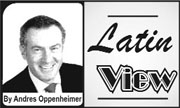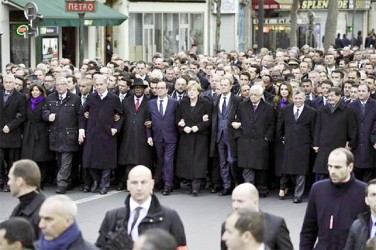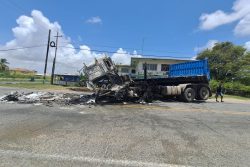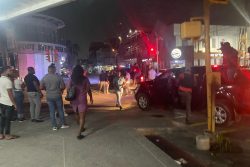The official reaction of Venezuela, Argentina, Ecua-dor and several other Latin American countries to the Islamic radicals terrorist attack against the French magazine Charlie Hebdo was not only weak, but shameful; they condemned the bloodshed but not its intention to silence the press.
Hours after the Janusry 7 attack on the satirical magazine that left 12 dead, Venezuelan President Nicolás Maduro issued a statement saying that he “strongly condemns the terrorist attack.” Likewise, Argentine President Cristina Fernández de Kirchner, Bolivian President Evo Morales, and Ecuadorean President Rafael Correa issued statements condemning the kill-ings, but without denouncing them as an attack on freedom of expression.
“It was a lukewarm response,” former Argentine Foreign Minister Dante Caputo told me in a telephone interview, referring to Argentina’s reaction. He said that Fernández’s government issued a “standard prepared statement, like the ones they send out after any terrorist attack, as if this were an ordinary attack like others that we see happening all the time.”
 “But this was no ordinary attack,” Caputo added. “It was an assault on our culture, an effort to intimidate the Western world into silence.”
“But this was no ordinary attack,” Caputo added. “It was an assault on our culture, an effort to intimidate the Western world into silence.”
It’s no coincidence that these Latin American leaders avoided even a tacit mention of the threat of Islamic fundamentalism to freedom of expression, critics say. Most of these presidents are not only close allies of Islamic fundamentalist regimes, but are waging a little-disguised war on freedom of the press in their own countries.
As Spain’s Elcano Royal Institute analyst Carlos Malamud wrote earlier this week in the website Infolatam.com, the governments of Argentina, Bolivia, Ecuador, Nicaragua and Venezuela have not only created conglomerates of friendly media outlets by directly or indirectly buying television stations and newspapers, but are regulating the media to control remaining independent voices.

By comparison, most European leaders — and to a lesser extent President Barack Obama, whose first statement after the attack in Paris only obliquely described it as an attack on “the universal values” — described the terrorist action as a direct attack against freedom of the press, and called on the world to repudiate it as such.
German Chancellor Angela Merkel said that “this repulsive act” was “not only an attack on the lives of French citizens and France’s national security. It is also an attack on freedom of expression and the press — a key component of our free democratic culture — which cannot be justified.”
Granted, there were some notable exceptions in Latin America, such as Brazil, Colombia, Peru and Chile, which stressed the need to defend freedom of expression.
But Argentina’s weak response was especially troubling, because the country has suffered bloody terrorist attacks on the AMIA Jewish community centre and the Israeli embassy in the 1990s, and should be in the forefront of the international fight against Islamic terrorism.
In addition to issuing a weak statement, no Argentine official was visible among the more than 40 world leaders that participated in Sunday’s massive anti-terrorist march in Paris. While Obama didn’t participate either, security experts agree that the US president faced much more complex security problems than Argentine officials.
Argentina’s controversial foreign minister, Hector Timerman, who alongside Fernández was accused by an Argentine prosecutor Wednesday of trying to help the Iranian regime cover up its responsibility for the 1990s terrorist attack on the AMIA centre in Buenos Aires, was in Paris at the time of Sunday’s march. He subsequently said he attended the rally with his family “as an ordinary citizen,” but no pictures of his participation have been released.
Timerman denied Argentine press reports that Fernández had prohibited him from participating at the Paris rally as a government representative. That fuelled even greater speculation that Argentina’s government had responded half-heartedly to the Paris terrorist attacks.
“The whole response from the government, and from pro-government media, was very worrying,” Caputo told me.
My opinion: I agree. The attack on Charlie Hebdo deserves an especially strong international response, because it was aimed at intimidating the West into accepting the impositions of radical Islam. It’s a time to stand up with greater resolve than ever in defence of freedom of expression, rather than to retreat from it, like Argentina and its ideological allies are doing. Long live Charlie Hebdo!
© The Miami Herald, 2015. Distributed by Tribune Media Services.









